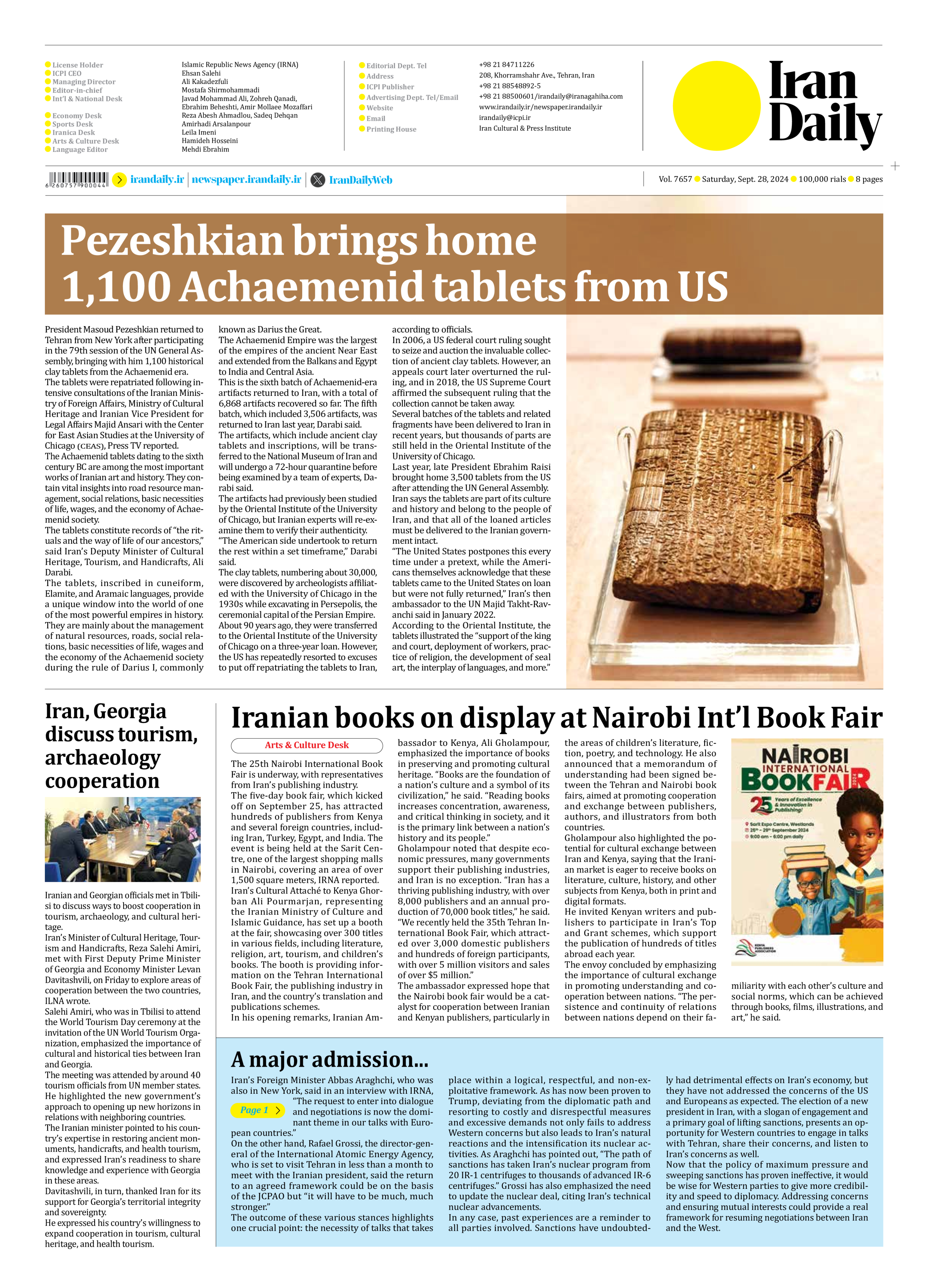
A major admission...
Page 1
Iran’s Foreign Minister Abbas Araghchi, who was also in New York, said in an interview with IRNA, “The request to enter into dialogue and negotiations is now the dominant theme in our talks with European countries.”
On the other hand, Rafael Grossi, the director-general of the International Atomic Energy Agency, who is set to visit Tehran in less than a month to meet with the Iranian president, said the return to an agreed framework could be on the basis of the JCPAO but “it will have to be much, much stronger.”
The outcome of these various stances highlights one crucial point: the necessity of talks that takes place within a logical, respectful, and non-exploitative framework. As has now been proven to Trump, deviating from the diplomatic path and resorting to costly and disrespectful measures and excessive demands not only fails to address Western concerns but also leads to Iran’s natural reactions and the intensification its nuclear activities. As Araghchi has pointed out, “The path of sanctions has taken Iran’s nuclear program from 20 IR-1 centrifuges to thousands of advanced IR-6 centrifuges.” Grossi has also emphasized the need to update the nuclear deal, citing Iran’s technical nuclear advancements.
In any case, past experiences are a reminder to all parties involved. Sanctions have undoubtedly had detrimental effects on Iran’s economy, but they have not addressed the concerns of the US and Europeans as expected. The election of a new president in Iran, with a slogan of engagement and a primary goal of lifting sanctions, presents an opportunity for Western countries to engage in talks with Tehran, share their concerns, and listen to Iran’s concerns as well.
Now that the policy of maximum pressure and sweeping sanctions has proven ineffective, it would be wise for Western parties to give more credibility and speed to diplomacy. Addressing concerns and ensuring mutual interests could provide a real framework for resuming negotiations between Iran and the West.







